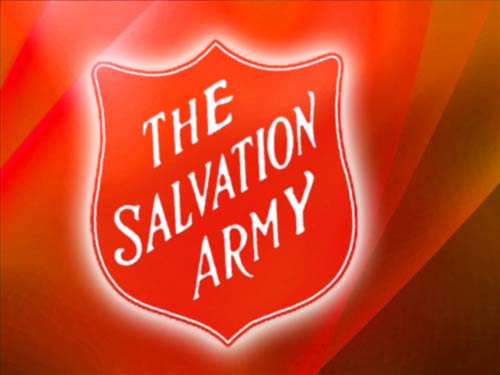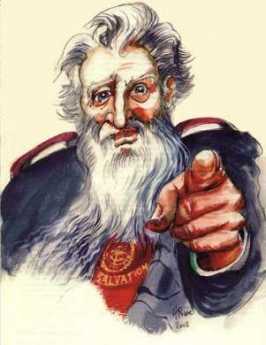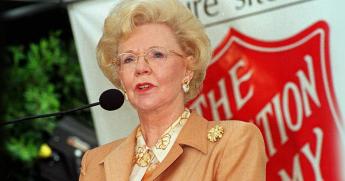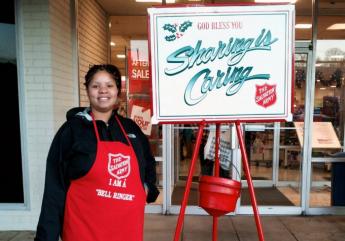Related Topics
North of Market
The term once referred to the Quaker district along Arch Street, and then to a larger district that had its heyday after the Civil War, industrialized, declined, and is now our worst urban problem area.
Religious Philadelphia
William Penn wanted a colony with religious freedom. A considerable number, if not the majority, of American religious denominations were founded in this city. The main misconception about religious Philadelphia is that it is Quaker-dominated. But the broader misconception is that it is not Quaker-dominated.
Customs, Culture and Traditions
Abundant seafood made it easy to settle here. Agriculture takes longer.
Volunteerism
The characteristic American behavior called volunteerism got its start with Benjamin Franklin's Junto, and has been a source of comment by foreign visitors ever since. It's still a very active force.
Right Angle Club 2008
A report, to the year 2008 shareholders of the Right Angle Club of Philadelphia, by the outgoing president, Neale Bringhurst...
Onward, Christian Soldiers
Among the ten largest cities in the United States, Philadelphia at 24% has the highest poverty rate. Why that should be so, and what should be done to change it, are questions for another article. Meanwhile, many helpless hopeless people need immediate help with problems of daily survival. No doubt, Philadelphia's long history of practical charity has acted as a magnet for victims of social problems caused elsewhere, and many of our locals who deserve some blame have moved away to more promising environments. For those who remain and want to help the immediate need, these things don't matter, just so long perhaps as emergency measures do not interfere with long-term solutions.

|
| Salvation Sign |
Among many private relief efforts, the Salvation Army is widely acknowledged to be the most efficient and most effective, as well the largest. Before the big event in 2004, it had a $3 billion budget and 3 million volunteers; an army, indeed. Except for Quaker charities, which mean to spend nothing on solicitation except through their own example, the Army spends a notable record of 91% of its budget for direct relief. In Philadelphia, they have 9 community centers, 8 residential centers, and 2 children's shelters. This is the largest charity in the United States, with branches in 110 other countries. There are 65,000 homeless people sheltered, every night.

|
| William Booth |
A moment should be spent on the history of the Army. It was founded by William Booth, who was a London pawnbroker before he became a Methodist minister. Sir Arthur Sullivan wrote "Onward, Christian Soldiers" in 1871 a decade before it became so aptly associated with the Salvation Army, and indeed before it became attached to the words of Sabine Baring-Gould . Originally the music had to do with St. Gertrude. The militarism of the organization has offended some people, even elders of the Methodist Church, and the Christian emphasis offends non-Christians. United, or Community, Funds are miffed that the Army usually will not agree to limit its solicitations to their umbrella, and modern sophisticates scorn the 19th Century traditions of Christmas Kettles, and such like. Since the main emphasis of the Army has been on relieving the problems of the Industrial Revolution, like alcoholism, drug addiction, prostitution, some see an implied criticism of modern progress, or of capitalism, or the entertainment business in general. Some people don't like the fact that most of the causes of poverty could be described as self-inflicted. You simply can't satisfy everybody. But when the rehabilitation of alcoholism and drug addiction generally carries a success rate of 25%, the Salvation Army approach -- no matter what you may think of its symbols -- is able to defend the claim of 65% success. If you don't like "Human Needs in Jesus' Name", just try "Practical Success in a Difficult Field" for a subtitle.

|
| Joan Kroc |
It thus becomes understandable that when in 2004 Joan Kroc, the widow of the founder of McDonalds Hamburger chain, decided to leave her estate of $1.5 billion to relief of the poor, she chose the Salvation Army to run things for her. Her interesting will divide the country into four parts, with 28 cities to receive $36 million grants for the construction of community centers, plus an equal amount for the endowment to run them. The size of the grants was calculated to force the local cities to match them (Philadelphia still has $20 million to go) and the endowments specify no income to be derived if the amount falls below the original $36 million, or otherwise to be limited to a 5% spending rule. She was perhaps optimistic that investment advisors could regularly produce a 17% return, and really truly optimistic if she believed our government could restrain inflation within those bounds. But a sharp business mind shines through these covenants, a very necessary ingredient of successful philanthropy.

|
| Salvation Workers |
Mrs. Kroc wanted these centers to be located in the areas of worst need; that explains the choice of a 12-acre plot in Nicetown, at the corner of Wissahickon and Hunting Park Avenues. The area now surrounding a former factory for the Budd Company has a 35% poverty rate. But after 2009 it will have an aquatic center of several swimming pools, gyms and fitness centers, a computer laboratory, arts and performing theater centers, and other more traditional Salvation Army facilities. It will also have 27 other American cities with comparable centers to share experiences with, to compete against, and to be put to shame by Philadelphia's superior ideas. We hope.
www.Philadelphia-Reflections.com/blog/1425.htm
Originally published: Friday, March 28, 2008; most-recently modified: Wednesday, May 29, 2019